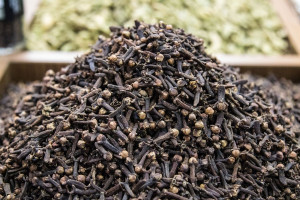Indonesia’s Environment Minister and Head of the Cesium-137 Task Force, Hanif Faisol Nurofiq, reported initial findings showing no abnormal radiation levels at the clove-exporting company suspected of contamination.
Radiation readings at the company’s site averaged between 0.04 and 0.07 microsieverts per hour − levels considered normal background exposure. This contrasts sharply with findings at the Cikande Industrial Estate, where contamination reached up to 1,000 microsieverts per hour.
“That location [at the clove exporter] showed an average of 0.07 or 0.04 microsieverts, which is the background exposure value from natural conditions,” Hanif told reporters in Jakarta on Thursday, October 2, 2025.
The inspection was carried out by a joint team from the Environment Ministry, the Nuclear Energy Regulatory Agency (Bapeten), the National Research and Innovation Agency (BRIN), and the police bomb squad (Gegana). A further site visit is scheduled for Saturday, October 4, 2025.
The probe was triggered after the U.S. Food and Drug Administration (FDA) reported traces of Cesium-137 in cloves imported from PT NJS, based in Surabaya. The allegedly contaminated products have not yet returned to Indonesia, meaning checks were conducted only at the company site.
“I don’t know where this radiation exposure comes from, but we will go there to make sure,” Hanif added.
Broader investigations
The Cesium-137 Task Force is currently handling two contamination cases, both flagged by the FDA: frozen shrimp from PT Bahari Makmur Sejati and cloves from PT NJS.
Authorities have sealed off the Cikande Industrial Estate in Banten, where the shrimp contamination originated, and classified the case as a special incident. Meanwhile, the clove case remains under early investigation.
Hanif said a coordination meeting with experts has already taken place to address both cases. However, he noted that no detailed reports have been received yet regarding individuals exposed to Cesium-137.
“Some community members identified as exposed have been treated seriously by colleagues at the Health Ministry,” he said.
